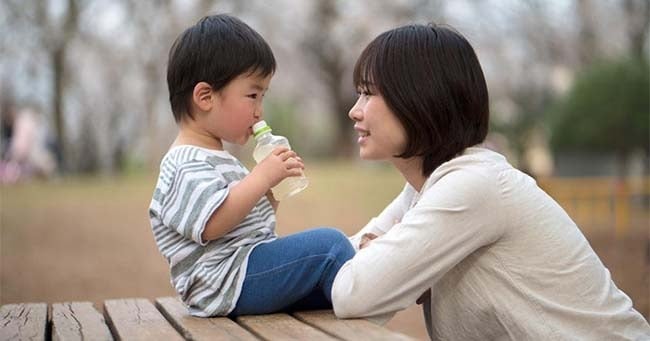The Pain of Learning
The distinction between diligence and laziness leads to different consequences. Children who neglect practicing and studying diligently may experience relaxed days in school, squandering their time while others focus on the lesson. In adulthood, however, they discover their deficiency in knowledge and competence, leading to menial jobs and a life of hardship.
If you are lazy in the first half of your life, you will have to work hard in the second half. Learning can be painful, but a life devoid of knowledge is much more difficult.
As Lin Bu, a Northern Song dynasty poet, once said, “If you don’t strive when you are young, you will suffer when you are old; if you have the will when you are young, you will find life easy when you are old.”
The Pain of Labor
Labor is honorable work and yet the most strenuous. Those who embrace labor and willingly exert themselves often enjoy a continually improving life. Conversely, individuals who merely seek enjoyment and avoid work will soon be cast aside by society.
Parents should encourage their children to perform household chores, not only to share family responsibilities but also so children understand the meaning and significance of labor.

Parents should encourage their children to perform household chores, not only to share family responsibilities but also so children understand the meaning and significance of labor.
Studies have shown that children who are fond of housework often have better career prospects in the future and are happier as adults. This is something a child who dislikes labor will not have.
There are children who relish the days when their parents prepare everything for them, but when they grow up, they cannot perform basic tasks like laundry or cooking and become “giant babies.”
True love is not indulgence but teaching children to be independent so they can forge ahead in life on their own.
The Pain of Discipline
A talk show host once declared: “Giving birth is easy, raising a child is difficult; raising a child is easy, but educating a child is difficult.”
Many parents often find it bitter to reprimand their children, worrying that it will make their children less intelligent or more stubborn.
If parents dare not impose discipline and criticize their children, they neglect a necessity for their children’s development. While criticism may be unpleasant to children, it is precisely this discomfort that prompts them to recognize their mistakes.
Grasses can only grow stronger through pruning, and children can only become better through discipline.
The Pain of Contemplation
Confucius once said: “Learning without thinking leads to confusion; thinking without learning leads to danger.”
A Tsinghua University professor has pointed out: “In China, 90% of children are pretending to study.”
Some children think that studying is simply about attending school on time, completing homework, and being fortunate enough to achieve high scores, but they don’t set higher goals for themselves.
In reality, no child is truly stupid; they only become “stupid because of laziness.” These children have given up using their minds, unwilling to face the challenges of thought.

Confucius once said: “Learning without thinking leads to confusion; thinking without learning leads to danger.”
The Pain of Perseverance
Parents must recognize that adults often regret their decisions later in life: regretting not learning a particular skill, or not being persistent in their studies when they were young, so they could lead the life they desired.
Teaching children about perseverance means encouraging them to develop goals and a positive attitude towards challenges and setbacks. Because it is only through perseverance that children learn to face life’s hardships.
The Pain of Failure
On the path of life, everyone encounters setbacks and difficulties. If parents constantly criticize their children, it will make them fearful and lose their confidence. Instead, parents should help their children develop the skill of handling failure because it is the first step to maturity.
Those who have experienced failures will become stronger, and their lives will become more diverse and fulfilling.
Ouyang Xiu, a Song dynasty scholar, said: “Hardship is a manifestation of talent, not a failure.”
Only by allowing children to experience difficulties and learn to be resilient, can they mature and achieve success in the future.
Children who don’t practice and study diligently may have an easier time at school, but they will face consequences in adulthood. They might discover a lack of knowledge and skills, leading to menial jobs and a difficult life. It’s important to understand that hard work in the first half of life pays off, and a life without knowledge is much harder.
Labor is honorable and brings improvement to one’s life. Those who embrace it willingly tend to have a better future. Parents should encourage children to do chores to understand the value of labor and share family responsibilities. Studies show that children who enjoy housework often have better career prospects and are happier as adults.
Discipline is essential for a child’s growth. While it may be unpleasant for parents to reprimand their children, it is necessary for their development. Criticism helps children recognize their mistakes and learn from them. Just as pruning makes grasses stronger, discipline helps children grow and improve.
Confucius said, “Learning without thinking leads to confusion, and thinking without learning is dangerous.” This highlights the importance of both learning and critical thinking. The Tsinghua University professor’s statement that “90% of children are pretending to study” emphasizes the need for genuine engagement in learning and setting higher goals.
Perseverance is vital because it encourages children to set goals and maintain a positive attitude during challenges. By learning to face hardships, they can avoid future regrets about missed opportunities. Teaching perseverance helps children develop the resilience needed to mature and achieve success.
Failures and difficulties make people stronger and bring diversity and fulfillment to life. Ouyang Xiu, a Song dynasty scholar, said, “Hardship is a manifestation of talent, not a failure.” Parents should help children develop the skill of handling failure, as it is a step towards maturity and overcoming challenges.






























